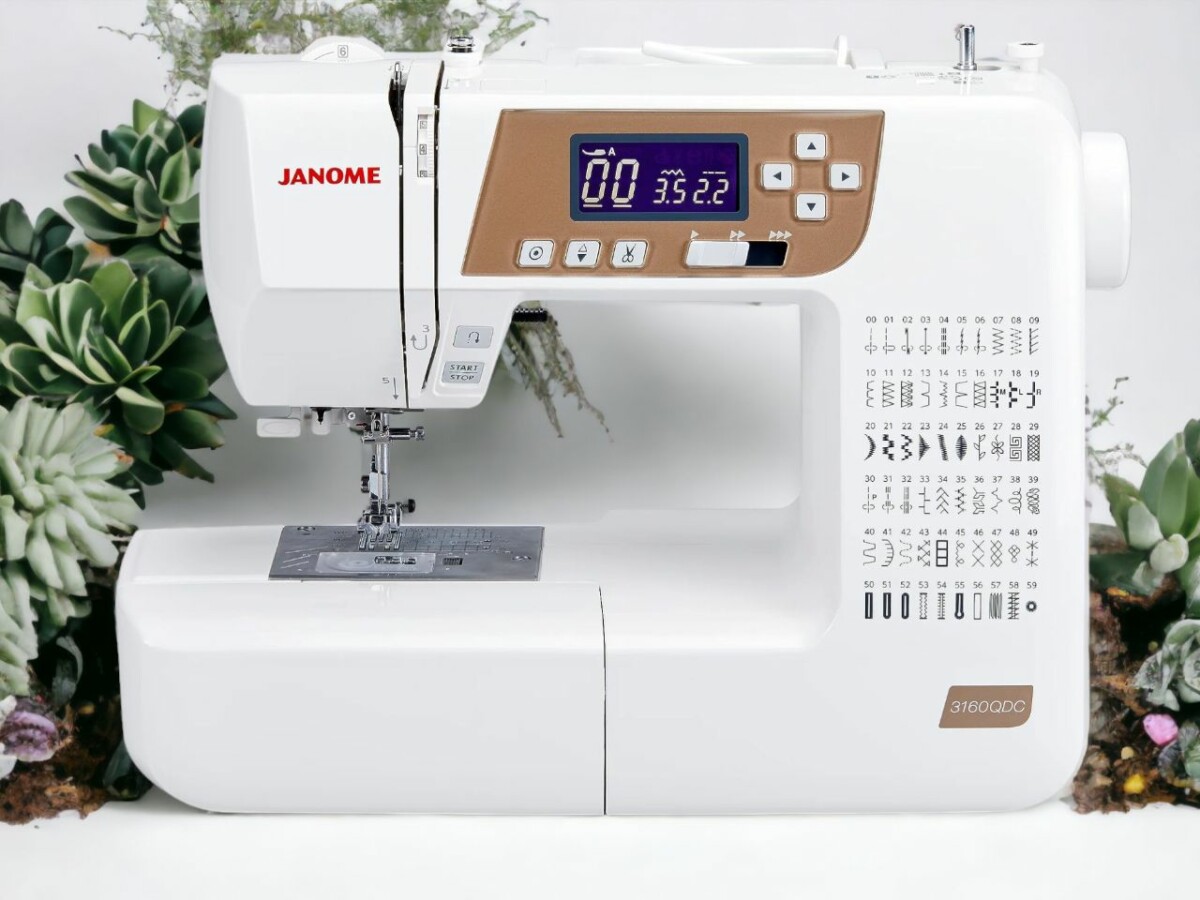Just like your car needs that perfect oil to purr like a kitten, your sewing machine craves the right type of lube. So, you’re thinking about coconut oil – a natural, green choice. But is it the real deal?
Let’s dive deep into the world of coconut oil, exploring its thickness, how it holds up to heat, and whether it plays nice with your sewing machine.
Together, we’ll figure out if this tropical gem can keep your sewing machine running as smooth as a hot knife through butter.
Can I Lubricate My Sewing Machine with Coconut Oil?
Using coconut oil on your sewing machine isn’t recommended. Rather, use oil specifically designed for sewing machines; this ensures smoother operation and prevents any potential damage.
Have you ever stopped to think about how crucial it’s to properly lube up your sewing machine? It’s a total game-changer, seriously. You can’t underestimate the power of a well-oiled machine when it comes to its performance and lifespan. It’s like giving your sewing machine a spa day – it keeps it purring along smoothly and helps fend off age by minimizing the wear and tear.
Now, let’s chat about synthetic oils. They’re a bit of a mixed bag. They’re ace at cutting down friction and they don’t get all sticky and gunky – a massive win for the inner workings of your machine. But there’s a catch. They can be a tad pricey and not every machine is a fan.
What Makes Coconut Oil a Possible Lubricant for Sewing Machines
You might be scratching your head, thinking, ‘Coconut oil as a sewing machine lubricant, really?’ But let me break it down for you.
First off, coconut oil has this super high viscosity thing going on. In simple terms, it’s thick and sticky, perfect for reducing friction between all those moving parts in your sewing machine. It’s like giving your machine a smoothie, instead of a shake, you know?
Next, this oil isn’t a diva when it comes to temperature. It can handle a wide range of heat, which is pretty important considering your machine can get pretty toasty during a sewing marathon.
And the best part? Coconut oil plays nice with a lot of different materials. So, you don’t have to worry about it messing with your machine’s precious parts.
When you stack it up against other sewing machine lubricants, coconut oil is kind of a game-changer. It’s Mother Nature’s gift to us – natural, biodegradable, and you can snag it at pretty much any grocery store. So, it’s not just good for your machine, but also for the planet.
But hey, I’m no expert. Before you go all-in on the coconut oil train, it won’t hurt to check out your machine’s specs and maybe even chat with a pro. Better safe than sorry, right?
The Science Behind Coconut Oil’s Suitability for High-Temperature Machines
Despite being a must-have in most kitchens, coconut oil’s got some serious chops when it comes to withstanding heat, thanks to its unique molecular makeup. This makes it a potential player in the game of high-temp machinery, like your trusty sewing machine.
When you’re weighing the pros and cons of coconut oil versus your regular sewing machine oil, the all-natural, no-nasties mix of coconut oil gives it a leg up. It’s got a high smoke point, which means it can take the heat without losing its cool. Plus, it’s packed with saturated fats that boost its stability and fight against oxidation.
But hey, even though it’s tempting to jump right in and swap over, it’s important to remember that every machine is a bit of a diva with its own specific needs. So, give it a whirl with a tiny amount first and keep a close eye on how your machine’s holding up before you commit to the full switch.
Potential Risks and Benefits of Using Coconut Oil on Your Sewing Machine
You might be thinking, ‘Hey, I can use coconut oil for my sewing machine!’ I mean, it makes sense, right? It’s got a high heat tolerance and it’s all-natural. But hold up, before you dive into this, let’s take a sec to look at the possible pros and cons of this not-so-typical choice.
- The Downside: So, here’s the thing. Coconut oil gets solid when it’s chillin’ at room temp. This could jam up your machine, and we don’t want that. Plus, it mightn’t have the right flowiness (aka viscosity) for your specific machine, which could lead to some wear and tear.
- The Upside: On the flip side, coconut oil is Mother Nature’s gift. It’s less likely to cause any nasty allergic reactions and it’s great at dealing with high temperatures.
- Going Coconut: If you’re sold on using a natural oil, just make sure to opt for fractionated coconut oil that stays liquid. And remember, always check the specs of your sewing machine before experimenting.
Expert Opinions and Recommendations on Using Coconut Oil for Sewing Machines
So, you’re thinking about using coconut oil in your sewing machine, huh? Let’s take a minute to dive into what the experts have to say about this.
Sure, coconut oil has its perks – it’s all-natural, free of nasty chemicals, and all that jazz. But when it comes to using it on your sewing machine, the pros are saying it’s a no-go.
Why, you ask? Well, coconut oil simply isn’t designed for machinery. It may not have the slickness your machine needs, and you could end up causing some damage.
Instead, the experts suggest sticking with oils specifically made for machines. They stay the same thickness no matter what, so your sewing machine will keep humming along like a champ.
If you’re on the hunt for the best oil to use, synthetic oils are a top pick. They’re known for sticking around for the long haul. Mineral oils also get a high-five for their slickness.
Bottom Line on Using Coconut Oil on Your Sewing Machine
Alright, we’ve shared quite a bit of insight on using coconut oil on your sewing machine, now let’s wrap this up. But before we do that, are there other facts that can aid in your sewing journey that you need to know? Of course, and we’ve dug them out just for you.
On your quest to using the right oils for your sewing machine, have you ever pondered over the power of owning an industrial sewing machine? Industrial sewing machines aren’t merely about the hype; they offer durability and versatility that make your sewing project smoother.
And while we’re still on that, have you unboxed your brand-new sewing machine, and you’re looking around, and you’re like, “Dude, where’s the thread?” If you’re not sure why your sewing machine didn’t come loaded, we got an in-depth article on why this is so. This piece titled do sewing machines come with thread touches on this subject in more detail, taking the guesswork out of it for you.
Last but not least, have you ever thought about what happens to that sewing machine oil sitting in your cabinet as time passes? Well, wonder no more. Our article on whether sewing machine oil gets old covers this topic thoroughly. Spoiler Alert: it does! And it might affect how your sewing machine performs, so you better check it out ASAP.
Well, there you have it; we hadn’t only covered coconut oil but also shared tips to amp up your sewing game. Remember, your sewing machine deserves the best, treat it as such. Keep those sewing projects coming!
I am a proud mother of two amazing daughters, and i run our sewing & embroidery business full time. I am also a part-time writer for this blog, because i love sharing my findings and experiences!







